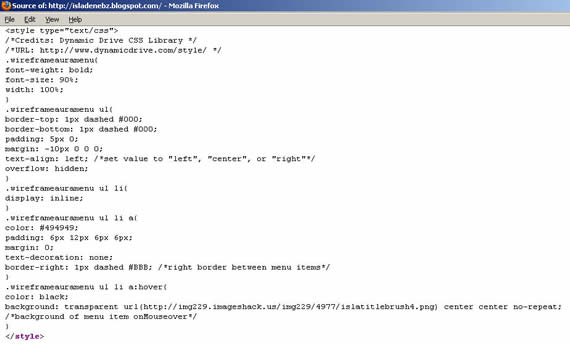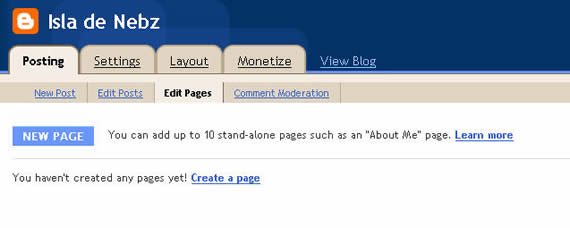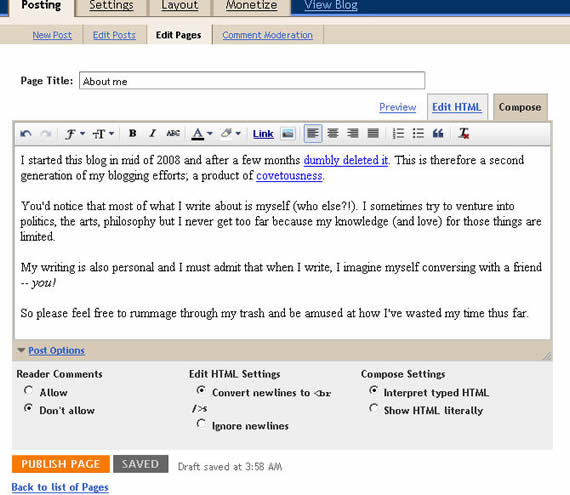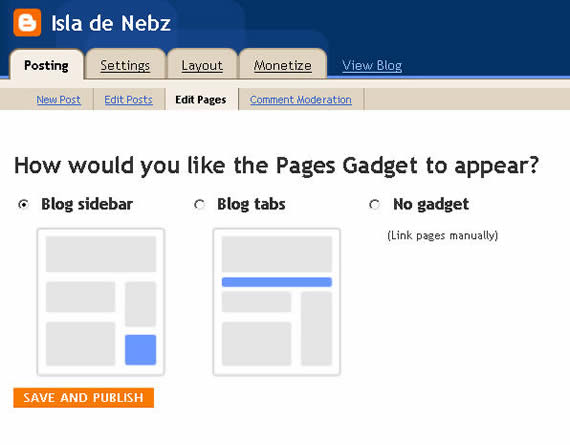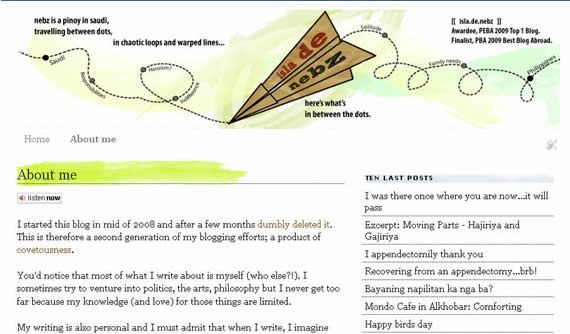Monday, March 29, 2010 8
Where your posts go
After you've clicked 'Publish Post', what's next? Apparently, a lot!
You're sitting in front of your computer, staring at a blank post screen when all of a sudden, an idea springs to mind! You type away the thought and after a few moment churns out a lengthy, worthy post. Satisfied that it will be liked by your readers, you click 'Publish Post'. You sit a while waiting for comments to come. In the meantime, where did you post go?Surprisingly, everywhere!
I sourced these information from www.wired.com from an article written by Frank Ros entitled The Life Cycle of a Blog Post, From Servers to Spiders to Suits — to You.
It's quite an interesting read (plus the graphics is really illuminating). Please visit the site.
Here's the translated texts of the article graphics.
Bloggers (you and I!)
↓
Thoughts (translated into a post)
↓
Bloghost
↓
Ping servers
The hosting service sends an alert to special servers maintained by the likes of Google Blog Search, Ping-o-matic, Yahoo's blogs, and Weblogs.com, then search engines, aggregators and others send out software bots called spiders to crawl the blog for updates.
↓
Search engines
Once the spiders have finished, the post is indexed and could be searchable on Technocrati or Google Blog Search.
↓
Data Miners
Analysts at places like BuzzMetrics, BuzzLogic and Cymfony crunch data using proprietary AI programs to determine how bloggers like you are responding to the ad. They'll try to splice posters by age, sex, location, and level of influence.
↓
Text scrapers
Bots are constantly scouring the Web for data they can suck up and churn out elsewhere. Your blog might be targeted for desirable keywords, which are scraped up at random.
↓
Aggregators
Minutes later, your post turns up on sites that collect content from across the blogosphere: Feed Readers like Bloglines and Google Reader display updates for their subscribers as well as meme trackers like Spinn3r, Techmeme and Technocrati (all relying on algorithms that analyze who's linking to what).
↓
Ad servers
Contextual ad networks like Google AdSense, ContextWeb, and Tribal Fusion scan your post for keywords that will trigger the insertion of an ad. Within minutes, you will see related text ads to your blog (unless your blog is ad-free).
↓
Corporations
Sometimes, companies will want to know what bloggers are saying about their product. They may alter marketing efforts or even their products as a result; sometimes, they'll jump into discussion directly.
↓
Spam blogs
Scraped text from your post gets dumped willy-nilly into spam blogs, which rely on random keywords to get a high page ranking on search engines. When readers go to these blogs and click on or view text ads, the sploggers collects a bounty.
↓
Online media
Other bloggers and new sites which use aggregators and search engines to comb the Web, may link to your post -- if it's interesting.
↓
Social bookmarks
Readers use sites like del.icio.us, Digg, and Reddit to note whether your post is worthy.
↓
Readers (you and I, too!)
Readers find your post and write their own comments, joining the discussion, setting off new pings, and starting the process over again.
Cool, huh. Here's my simplified version of the source graphic.

The next time we hit our 'Publish Post', let's bear in mind: somewhere in this vast expanse of blogging and internet, someone big may be reading us.




